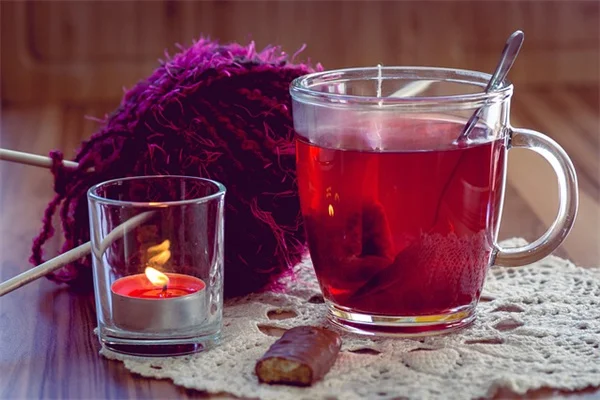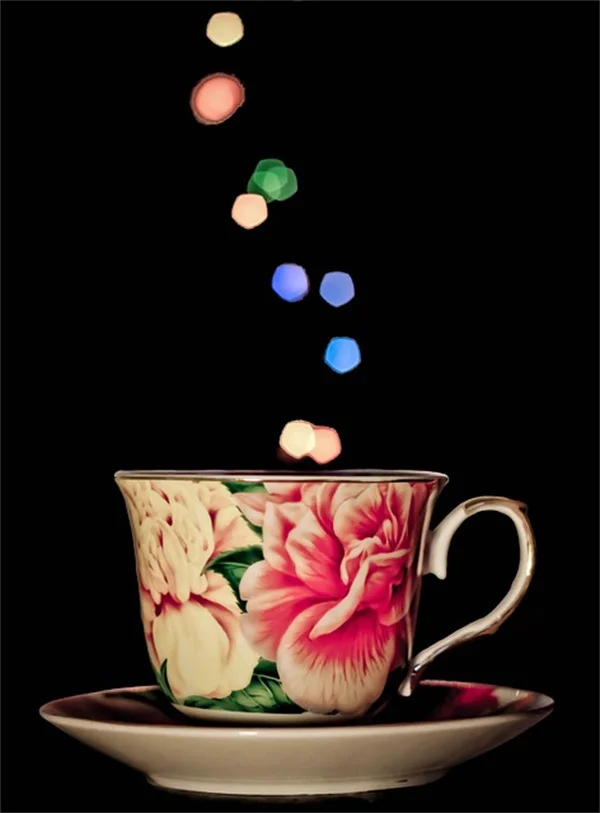Is Ricezempic the new miracle weight loss drink? The short answer is no - this viral TikTok trend of drinking rice water won't give you Ozempic-like results. While resistant starches in rice water might help you feel slightly fuller, experts agree it's not a viable solution for significant weight loss. I've dug into the science behind this trend, and here's what you need to know before jumping on the Ricezempic bandwagon.You've probably seen those TikTok videos claiming incredible weight loss results from this cloudy rice water drink. But here's the truth: drinking Ricezempic is like bringing a squirt gun to a wildfire when it comes to serious weight management. Registered dietitian Lisa Moskovitz puts it bluntly: This is just another quick fix that instills false hope. The real path to sustainable weight loss involves lifestyle changes, not trendy hacks.Before you toss your rice and start chugging the water, let me break down why this trend misses the mark - and what actually works for healthy, lasting weight management. Because let's be real - if weight loss was as easy as drinking rice water, we'd all be doing it!
E.g. :7 Proven Ways to Manage Extreme Hunger After Stopping GLP-1 Drugs
- 1、What's the Buzz About Ricezempic?
- 2、Does Ricezempic Actually Work for Weight Loss?
- 3、The Real Benefits (and Risks) You Should Know
- 4、Better Alternatives That Actually Work
- 5、The Final Verdict on Ricezempic
- 6、The Psychology Behind Viral Health Trends
- 7、The Business of Weight Loss Hacks
- 8、Cultural Perspectives on Weight Loss
- 9、Building a Healthy Relationship With Food
- 10、FAQs
What's the Buzz About Ricezempic?
The Viral TikTok Trend Explained
Have you seen those #Ricezempic videos flooding your TikTok feed? People are soaking raw rice in water, tossing the grains, and chugging the cloudy liquid like it's some kind of weight loss magic potion. The claim? This "Ricezempic" drink supposedly works like those expensive GLP-1 medications (Ozempic, Wegovy) by making you feel full through resistant starches.
Let me break it down for you - one popular TikToker swears they dropped 59 pounds in just two months drinking this stuff every morning. Sounds too good to be true? That's because it probably is. While resistant starches do exist in rice water, experts say you'd need to drink gallons of this stuff daily to get any Ozempic-like effects. And trust me, nobody wants to walk around bloated from rice water all day!
Why Everyone's Obsessed With Quick Fixes
Here's the real tea - we're living in an instant gratification world where people want overnight results without putting in the work. Registered dietitian Lisa Moskovitz puts it perfectly: "People keep searching for magic bullets, but sustainable weight loss involves lifestyle changes, not TikTok hacks."
Think about it - when was the last time a "miracle solution" actually worked long-term? Exactly. These trends come and go because they don't address the root causes like stress, sleep, and nutrition. As my grandma used to say, "If it sounds too good to be true, it probably is!"
Does Ricezempic Actually Work for Weight Loss?
 Photos provided by pixabay
Photos provided by pixabay
The Science Behind Resistant Starches
Okay, let's give credit where it's due - resistant starches do have some benefits. They can slow digestion and help stabilize blood sugar, which might make you feel fuller slightly longer. But here's the kicker - the amount in rice water is minuscule compared to what you'd get from actual food.
Check out this comparison table showing resistant starch content:
| Food Source | Resistant Starch (per serving) |
|---|---|
| Cooked then cooled potatoes | 4.3g |
| Green bananas | 4.7g |
| Rice water (Ricezempic) | ~0.5g |
See what I mean? You'd need to drink 8-10 glasses of rice water to match what you'd get from one medium potato! Not exactly practical (or tasty).
How Ozempic Actually Works
Now let's talk about why Ricezempic can't hold a candle to real GLP-1 medications. These drugs don't just affect digestion - they work on your brain chemistry to regulate appetite signals. Dietitian Kim Shapira explains: "Ozempic helps your brain distinguish between real hunger and emotional eating - something rice water could never do."
Here's a mind-blowing fact - GLP-1 drugs are so effective because they target multiple systems at once. Rice water? It's basically just cloudy water with trace nutrients. Not exactly the weight loss revolution TikTok claims it is.
The Real Benefits (and Risks) You Should Know
Potential Upsides of Rice Water
Before we completely write off Ricezempic, let's acknowledge it's not all bad. The resistant starch in rice water can feed your gut bacteria - and we all know a happy gut means better digestion and immunity. Moskovitz notes: "While not a weight loss miracle, resistant starches do support metabolic health when consumed regularly."
But here's the million dollar question - why drink boring rice water when you could eat delicious foods with way more benefits? A bowl of overnight oats with chia seeds gives you 10x the fiber, keeps you full for hours, and actually tastes good. Just saying!
 Photos provided by pixabay
Photos provided by pixabay
The Science Behind Resistant Starches
Now let's talk about the elephant in the room - the potential dangers of this trend. First off, raw rice can contain harmful bacteria that survive soaking. I don't know about you, but food poisoning doesn't sound like my idea of a weight loss strategy!
Even scarier? Rice naturally absorbs arsenic from soil, and concentrating it in water increases your exposure. As Moskovitz warns: "You're essentially drinking a heavy metal cocktail with questionable benefits." And let's not forget the bloating and digestive issues many report from chugging starchy water on an empty stomach.
Better Alternatives That Actually Work
Foods Packed With Resistant Starch
If you're sold on resistant starches (and you should be!), here's how to get them the right way:
- Cooled potatoes - Make potato salad your new best friend
- Green bananas - Add to smoothies for creaminess
- Legumes - Lentils and chickpeas are starch powerhouses
- Whole grains - Especially barley and farro
Pro tip: Cooking then cooling starchy foods actually increases their resistant starch content through a process called retrogradation. Science for the win!
Lifestyle Changes With Real Impact
Instead of chasing TikTok trends, focus on these proven strategies:
1. Prioritize protein at every meal - it keeps you fuller longer than any starch
2. Stay hydrated - often we mistake thirst for hunger
3. Get quality sleep - poor rest wrecks your hunger hormones
4. Manage stress - cortisol drives cravings like nothing else
Remember what dietitian Shapira said earlier? "You can't outrun a bad diet." No amount of rice water can compensate for poor eating habits and lifestyle choices.
The Final Verdict on Ricezempic
 Photos provided by pixabay
Photos provided by pixabay
The Science Behind Resistant Starches
At the end of the day, Ricezempic is just another quick fix in a long line of weight loss fads. While the resistant starch concept has merit, the execution falls flat. As Moskovitz puts it: "Sustainable weight loss comes from consistent healthy habits, not drinking questionable rice water."
Think about it - if something this simple actually worked, wouldn't doctors be prescribing it instead of expensive medications? The truth is, there are no shortcuts when it comes to health. But the good news? Small, consistent changes add up to big results over time.
What You Should Do Instead
Instead of jumping on the Ricezempic bandwagon, try this:
1. Focus on adding nutritious foods rather than restricting
2. Find physical activities you actually enjoy
3. Address emotional eating patterns
4. Be patient with your body
As someone who's seen countless trends come and go, I can tell you this - the real "secret" to weight management isn't in your rice cooker. It's in building sustainable habits that work for your unique body and lifestyle. Now that's something worth trending!
The Psychology Behind Viral Health Trends
Why We Fall for Quick Fixes
Ever wonder why these bizarre health trends go viral so quickly? Our brains are wired for instant gratification - we want results yesterday! When someone posts a "before and after" with dramatic weight loss, our logical thinking takes a backseat. I've been there too - scrolling through TikTok at 2 AM convinced that drinking rice water will solve all my problems.
The truth is, these trends prey on our deepest desires for easy solutions. Social media algorithms know exactly what buttons to push - showing us endless success stories while hiding the failures. Remember the cinnamon challenge? Yeah, that didn't end well for most people either. Our brains trick us into thinking "This time will be different!" when history shows it rarely is.
The Role of Influencer Culture
Let's talk about the elephant in the room - influencers getting paid to promote these trends. Not all influencers are bad, but many don't disclose when they're being compensated to push products. I recently saw a creator with "Ricezempic" in their bio who later admitted they were being paid by a rice company!
Here's a scary thought - what if these trends are more about making money than helping people? When you see someone promoting Ricezempic, ask yourself: Are they a qualified nutritionist? Do they show any scientific evidence? Or are they just trying to get more followers and sponsorships? The answers might surprise you.
The Business of Weight Loss Hacks
How Companies Profit From Our Desperation
Did you know the weight loss industry in America is worth over $70 billion? That's right - BILLION with a B. Companies know we're willing to try anything, so they repackage old ideas with new names like Ricezempic to make them seem innovative. Remember when apple cider vinegar was the miracle cure? Same playbook, different product.
Here's something that'll make your head spin - some of these "natural" remedies are actually owned by the same companies that make prescription weight loss drugs. They're playing both sides! They know most people will try the cheap hack first, fail, then come running to their expensive medical solutions. Pretty clever (and kinda sneaky) business strategy, right?
The Supplement Industry's Dirty Secrets
Now let's talk about supplements - the wild west of the health industry. Unlike medications, supplements don't need FDA approval before hitting shelves. That means companies can make bold claims without solid proof. Ricezempic might be free, but many similar trends lead people to buy expensive supplements that do nothing.
Want to know something shocking? A 2023 study found that 72% of weight loss supplements tested contained ingredients not listed on the label. Some even had prescription drugs mixed in! This is why doctors warn against quick fixes - you never truly know what you're putting in your body.
Cultural Perspectives on Weight Loss
How Different Cultures Approach Health
Here's something fascinating - many cultures have been using rice water for generations, but not for weight loss. In Asian countries, it's traditionally used as a beauty treatment for hair and skin. In Caribbean cultures, it's given to soothe upset stomachs. The weight loss claim is a brand new twist invented for social media virality.
This makes me wonder - why do Americans always look for the "next big thing" when other cultures focus on time-tested traditions? Maybe instead of chasing trends, we should learn from cultures that prioritize balance and moderation. Just a thought!
The Pressure of Western Beauty Standards
Let's get real for a second - our obsession with quick fixes stems from unrealistic beauty standards. We're bombarded daily with edited images and filters that create impossible ideals. Is it any wonder we're desperate for shortcuts when we're constantly told we're not good enough as we are?
I'll never forget my client Maria who tried every trend from celery juice to waist trainers before realizing her weight struggles were tied to childhood trauma. No amount of rice water could fix that. Sometimes what we think is a physical issue is actually emotional pain in disguise.
Building a Healthy Relationship With Food
Moving Away From Restrictive Diets
Here's what most trends get wrong - they focus on restriction rather than nourishment. Ricezempic is just another way to avoid eating real food. But guess what happens when you deprive yourself? You end up binging later. I've seen it happen countless times with clients.
Instead of looking for magic potions, try this radical idea - eat foods you actually enjoy in reasonable portions. Crazy, right? When you stop labeling foods as "good" or "bad," you develop a healthier relationship with eating. Who would've thought?
The Joy of Cooking Real Meals
There's something magical about preparing a meal with your own hands that no trend can replicate. The sizzle of garlic in a pan, the smell of fresh herbs, the colors of seasonal vegetables - these sensory experiences nourish both body and soul. Compare that to chugging cloudy rice water...not exactly the same, is it?
I challenge you this week to cook one new recipe using whole ingredients. Notice how different you feel compared to when you're following restrictive trends. My money says you'll feel more satisfied, energized, and proud of yourself. And isn't that what we're all really searching for?
E.g. :Can't Get Ozempic? Here's 6 Ozempic Alternatives to Consider ...
FAQs
Q: What exactly is Ricezempic and how do you make it?
A: Ricezempic is that cloudy water you get after soaking raw rice for 30-90 minutes before cooking. TikTokers claim you should toss the rice and drink this starchy water first thing in the morning for weight loss. To make it, you literally just soak 1/4 cup uncooked rice in 2 cups water, then strain it. But here's what they don't tell you - this method extracts minimal resistant starch while concentrating potential contaminants like arsenic. As a nutrition professional, I'd much rather you eat the actual rice or get resistant starches from safer sources like cooled potatoes or green bananas.
Q: Can Ricezempic really work like Ozempic for weight loss?
A: Let's get real - Ricezempic is to Ozempic what a toy car is to a Tesla. While both may affect digestion slightly, GLP-1 medications like Ozempic work on your brain's hunger signals in ways rice water never could. Registered dietitian Kim Shapira explains: "Ozempic helps regulate emotional eating by affecting brain chemistry - something no amount of rice water can replicate." The tiny amount of resistant starch in Ricezempic might make you feel 5% fuller, while Ozempic can reduce hunger by 50% or more. There's just no comparison!
Q: Are there any actual health benefits to drinking Ricezempic?
A: The potential benefits are minimal at best. Yes, resistant starches can support gut health by feeding good bacteria - but you'd get way more from eating actual rice or other starch sources. One positive? It's basically calorie-free. But as Moskovitz points out, "Replacing food with rice water means missing out on essential nutrients." If you want gut health benefits, you're better off eating fermented foods like yogurt or kimchi that provide probiotics along with resistant starches.
Q: What are the dangers of the Ricezempic trend?
A: Where do I start? First, raw rice can harbor bacteria that survive soaking, risking food poisoning. Second, rice concentrates arsenic from soil - and drinking the water increases your exposure to this toxic heavy metal. Third, many people report bloating, gas and digestive discomfort. Most concerning? This trend promotes unhealthy quick fixes over sustainable habits. As Shapira warns: "These fads distract from the real work of building a balanced relationship with food."
Q: What are better alternatives to Ricezempic for weight management?
A: Instead of questionable rice water, focus on these proven strategies: 1) Eat more fiber-rich whole foods (think oats, beans, veggies), 2) Prioritize protein at meals to stay full, 3) Stay hydrated with actual water, 4) Get quality sleep to regulate hunger hormones, and 5) Manage stress to prevent emotional eating. For resistant starches, cooled potatoes, green bananas and legumes are safer, more effective options. Remember - sustainable weight loss comes from lifestyle changes, not TikTok trends!







